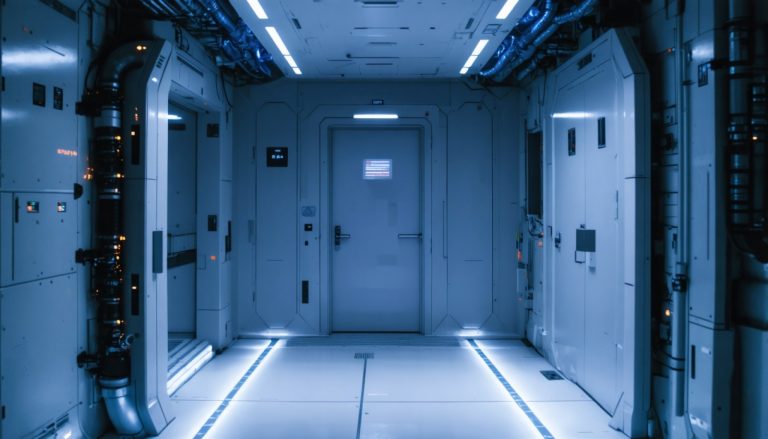Wisconsin Unveils Its First EV Fast Charging Stations
In a significant step towards enhancing electric vehicle (EV) infrastructure, Wisconsin has launched its first three fast charging stations, funded by the National Electric Vehicle Infrastructure (NEVI) Formula program. These stations are strategically placed in the rural areas of Ashland, Chippewa Falls, and Menominee, popular destinations for tourists and conveniently located along vital highway routes.
Each of the new charging stations offers four ports equipped with both CCS and J1772 connectors, providing a robust charging capability of up to 150 kW per port. Designed with accessibility in mind, these stations are open to the public 24/7 and offer essential amenities like restrooms, dining options, and shelter, ensuring a comfortable experience for all users.
Situated at local Kwik Trip locations, where millions of customers frequent each week, these chargers are easily accessible and bolster consumer confidence in EV charging. The executive director of the Joint Office of Energy and Transportation highlighted the importance of expanding the NEVI network, emphasizing how these charging options facilitate road trips and visits to family, thus enhancing overall convenience for EV drivers.
As part of a broader initiative, Kwik Trip has secured $8.1 million in NEVI funding to establish chargers at 24 locations throughout Wisconsin, paving the way for a robust network of DC fast chargers across the Midwest, and further promoting the switch to electric vehicles.
Wisconsin’s EV Charging Revolution: Fast Stations Pave the Way for Electric Travel
In a groundbreaking move to bolster electric vehicle (EV) infrastructure, Wisconsin has launched its inaugural fast charging stations, marking a pivotal moment in the state’s commitment to sustainability and clean energy. Funded through the National Electric Vehicle Infrastructure (NEVI) Formula program, these stations are purposefully located in Ashland, Chippewa Falls, and Menominee—areas known for attracting tourists and positioned strategically along critical highway routes.
Features of the New Charging Stations
Each newly established charging station is equipped with four ports, which feature both CCS (Combined Charging System) and J1772 connectors. This design enables a fast charging capability of up to 150 kW per port, catering to a variety of electric vehicles. The stations are designed with user experience in mind, offering 24/7 accessibility and essential amenities such as restrooms, dining options, and sheltered areas to enhance the convenience and comfort of EV drivers.
Strategic Locations and Accessibility
The charging stations have been strategically located at popular local Kwik Trip convenience stores, which see millions of visitors weekly. This positioning not only improves accessibility but also builds trust and confidence among consumers regarding electric vehicle charging. With essential services nearby, these stations are likely to ease range anxiety among new EV users, making electric travel more enticing.
Funding and Future Prospects
As part of a broader initiative to expand EV infrastructure, Kwik Trip has secured $8.1 million in NEVI funding to deploy charging stations at 24 locations across Wisconsin. This ambitious plan aims to create a comprehensive network of DC fast chargers throughout the Midwest. As a result, consumers can expect increased availability of charging stations, further encouraging the switch to electric vehicles.
Benefits and Use Cases
The development of these fast charging stations will benefit various groups, including:
– Tourists: Travelers can enjoy a seamless road trip experience without worrying about charging access.
– Local Residents: EV owners in rural areas can charge their vehicles conveniently, promoting greater adoption of electric vehicles.
– Businesses: Local businesses can attract more customers by providing essential amenities alongside charging facilities.
Pros and Cons of EV Fast Charging Stations
Pros:
– Accessibility: 24/7 operation ensures that EV drivers can charge their vehicles at their convenience.
– Speed: High charging rates reduce the amount of time spent at the station, enhancing travel efficiency.
– Infrastructure Growth: Supports the transition to electric vehicles by establishing a more extensive charging network.
Cons:
– Initial Investment: High costs associated with installation and maintenance of fast charging stations.
– Dependence on Grid: Sustainability depends on the cleanliness of the electricity used to charge vehicles.
Market Trends and Innovations in EV Charging
The launch of these stations aligns with the growing trend of electrification in the automotive sector. As more automakers commit to producing electric vehicles, the demand for charging infrastructure continues to rise. Innovations such as smart charging stations and renewable energy integration are on the horizon, promising even more advancements in EV infrastructure.
Security Aspects
With the rise of EV charging stations, concerns about cybersecurity are becoming increasingly important. Protecting user data and ensuring secure payment options at charging stations will be crucial to fostering consumer confidence and encouraging the adoption of electric vehicles.
Sustainability and Environmental Impact
The expansion of EV charging stations is vital for promoting electric vehicle adoption, which in turn supports sustainability goals by reducing greenhouse gas emissions. The use of renewable energy sources for charging is an integral part of this transition, contributing to a cleaner environment.
With Wisconsin taking these significant steps toward enhancing its electric vehicle infrastructure, it is poised to lead in the Midwest’s green transportation movement. This initiative showcases how strategic funding and planning can contribute to both economic growth and environmental sustainability.
For more insights, visit Wisconsin Government.



